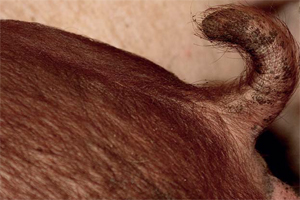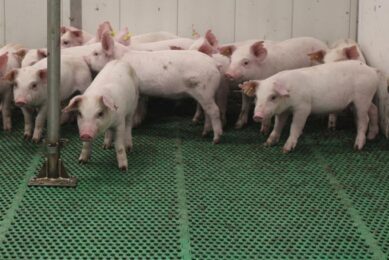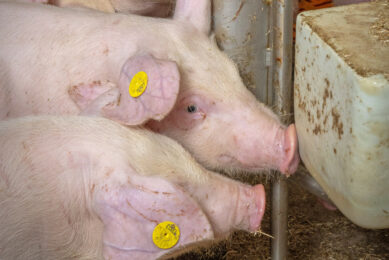Meloxicam treatment reduces castration, tail docking pain

Observations of behaviour and analysis of cortisol concentrations indicate meloxicam treatment does reduce pain when used for piglets prior to castration and tail docking.
In addition, routine treatment of piglets with meloxicam does not improve growth, but may reduce mortality in litters nursing older sows.
Researchers at the University of Guelph’s Ontario Veterinary College dived in the subject of meloxicam as they wanted to establish how it practically and economically apply pain control. This they did after research studies showed that both castration as well as tail docking is painful.
In total, 2,888 piglets were alternately assigned either to meloxicam or a placebo injected intramuscularly 30 minutes prior to processing, which included tail docking for females, and tail docking and castration for males. All piglets were weighed on the day of processing (5 to 7 days of age) and at weaning (19 to 21 days of age). Vocalisation scoring during castration, behavioural observations and analysis of plasma cortisol concentrations were performed on a subset of animals.
Growth was not associated with treatment, but was positively correlated with weight at processing and negatively correlated with litter size. Mortality did not differ between treatment groups, but there was an interaction between treatment and parity, with piglets nursing older sows (parity > 5) and treated with placebo being 4.4 times more likely to die than piglets nursing older sows and treated with meloxicam.
Behaviour scores for isolation (isolating themselves from the other pigs) and plasma cortisol concentrations were higher for placebo-treated piglets than for meloxicam-treated piglets.
The study was published in the Journal of Swine Health and Production, early 2014.











